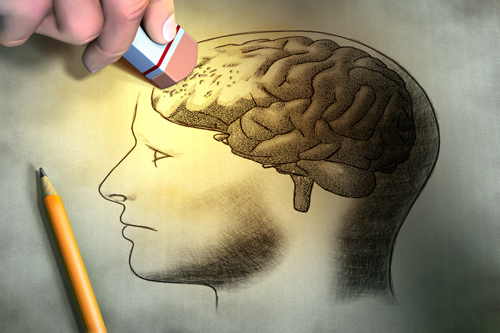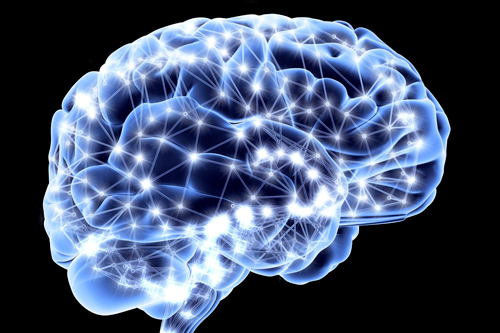 One of the first things Lynn asked when she settled into my office for help overcoming post-traumatic stress disorder was, “Can’t we just erase the memories that are making me feel this way?”
One of the first things Lynn asked when she settled into my office for help overcoming post-traumatic stress disorder was, “Can’t we just erase the memories that are making me feel this way?”
As a trauma survivor myself, I understood Lynn’s plea. I carry quite a few memories that have made my life miserable at times. Instead of seeking to erase them, I’ve learned to embrace them as defining moments that helped make me the person I am today. But in a culture in which we erase so many things, from digital footprints to crow’s feet, why not erase more deeply troubling psychological elements?
Science, it seems, is working on granting that wish. MIT recently released results of mice studies, published in the journal Neuron, about the impact of the gene Tet1 on DNA methylation (a process that affects gene expression). The researchers reported that Tet1 can eliminate high levels of DNA methylation on memory genes that make it difficult to forget painful experiences. This finding has important implications for people with post-traumatic stress disorder. Someone who continues to fear a place where something bad happened, for example, may overcome this painful association through enhanced Tet1 expression. While the original memory remains, it loses its power to cause anxiety and allows the person to have a more rational response. As a result of these findings, researchers are now exploring how to increase Tet1 levels artificially.
“Reducing the pain and suffering associated with trauma is essential for survivors to be able to restore their lives, but when it comes to manipulating the mind, progress needs to be made with extreme caution. If memory extinction and erasure prescriptions become as popular as those for Prozac and Viagra, how much peace could survivors truly gain?” Taking the process even further, a study recently published in Biological Psychiatry reveals how scientists at the Scripps Research Institute successfully erased dangerous drug-associated memories in mice and rats without affecting less harmful memories. Part of memory production relies on the alteration of nerve cells through changes occurring in the dendritic spines (structures that receive electrochemical signals from outside neurons). Actin, a protein that comprises the infrastructure of a cell, is responsible for promoting structural changes within it.
In the Scripps study, scientists inhibited actin polymerization (the process that creates larger, chainlike molecules) during the maintenance phase of memory formation. Subsequent behavioral tests showed that the animals immediately and completely lost the dangerous memories (associated with methamphetamine), while preserving all other memories. Scientists are now studying what makes memory types different and how this process can be applied to traumatic versus drug-associated memories.
Reducing the pain and suffering associated with trauma is essential for survivors to be able to restore their lives, but when it comes to manipulating the mind, progress needs to be made with extreme caution. If memory extinction and erasure prescriptions become as popular as those for Prozac and Viagra, how much peace could survivors truly gain? We don’t yet know how long-lasting the results of these memory changes would be, but we do know that their reversal would be disastrous for a patient.
Where painful memories linger, no quick fix exists. The process of trauma recovery, while grueling, represents the entryway to post-traumatic growth. If we remove that self-evolving rite of passage, survivors will lose more than a memory; they will lose their opportunity to affect, choose, define, and develop their own personal identity. The field of epigenetics teaches that genes can be turned on and off by experience. In healing, trauma survivors benefit from experiences that allow them to turn on genes that reinforce positive and strong survival traits, characteristics, and qualities learned only through the process of wrangling the dark side and emerging triumphant.
The results out of MIT regarding the manipulation of genes vital to memory extinction may indeed help survivors successfully and more comfortably reprocess memories. The Scripps research suggests, however, that it may soon be possible to pop (yet another) pill and blissfully experience enormous relief―until the next disturbing experience happens and the survivor has developed zero skills for coping.
In helping people feel better, it is simultaneously our job to help them become stronger and more resilient. Used properly, the MIT studies may help patients do that. But perhaps the Scripps researchers should be asking themselves, How will these findings help people heal rather than simply forget?




3 Comments
libby kandall
please send me you articles
Rose Caiola Musacchia
Hi Libby,
We will add you to our Weekly Highlights email distribution. That way you’ll receive an email each Friday that links to the articles we featured that week.
I’m glad you like our content!
Rose Caiola Musacchia
Theodore A. Hoppe
There is more recent research from MIT than this:
http://web.mit.edu/newsoffice/2014/erasing-traumatic-memories-0116.html
This research combines therapy and a drug.
The Tet1, 2,3 research is still in it early stages. Don’t expect anything helpful to come on it anytime some.